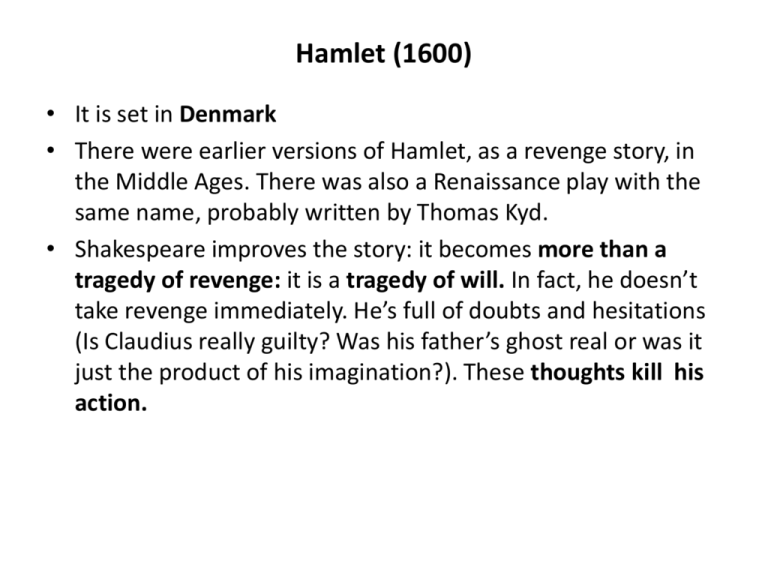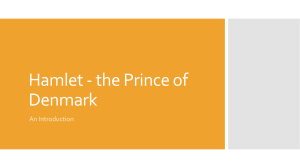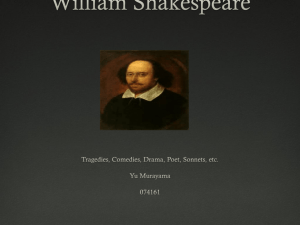Main themes in Hamlet - Libero
advertisement

Hamlet (1600) • It is set in Denmark • There were earlier versions of Hamlet, as a revenge story, in the Middle Ages. There was also a Renaissance play with the same name, probably written by Thomas Kyd. • Shakespeare improves the story: it becomes more than a tragedy of revenge: it is a tragedy of will. In fact, he doesn’t take revenge immediately. He’s full of doubts and hesitations (Is Claudius really guilty? Was his father’s ghost real or was it just the product of his imagination?). These thoughts kill his action. Important themes in the monologue: • The first lines of the monologue (“to be or not to be”, lines 1-5) can be interpreted in two ways and present two important themes: life vs death (or stoic attitude vs suicide): is it better to go on living (and suffering) or to commit suicide and put an end to our suffering? action vs inaction: is it better to remain indifferent and leave things as they are or to fully realize one’s potential and take important decisions? • We choose life because we are afraid of death. The fear of what there is after death is an obstacle to action. (Monologue: lines 913:“To die, to sleep. To sleep, perchance to dream. Ay, there’s the rub….”. “…the undiscovered country…..puzzles the will….” lines 2333) • Consciousness makes us afraid to take action and thinking too much make us unable to act (lines 29-33 explain, through a metaphor, how thought kills action) Other important themes in Hamlet • Honour: any action to correct a wrong should be reasoned, not emotional (many actions taken impulsively by Hamlet cause great trouble to other people: Polonius, Ophelia) • Appearance vs reality: a theme connected to the sense of doubt and ambiguity typical of the 16th century, when the certainties of the past were disproved or modified. • The power of the theatre: “the play within the play”, a mere fiction, shows the truth. • Madness vs sanity: Hamlet pretends to be mad to carry out his plans more easily (“there’s reason in his madness”, Polonius says after talking to him). • Hamlet as the first modern hero: like Hamlet, modern man is tormented by a lack of religious or moral certainties (which takes him to inaction) and by an inability to communicate. • Hamlet as an example of Oedipus complex (psychoanalitical reading): he loves his mother and is jealous of his step-father Claudius.








